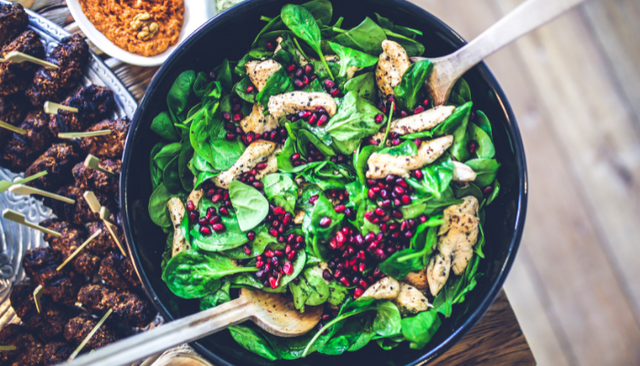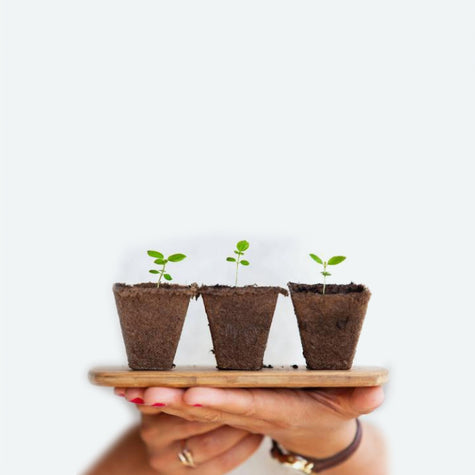Did you know that gardening is great for your health? There are so many advantages and benefits to becoming a gardener. While we are going through a very trying year and practicing social distancing by staying home, Americans are finding new hobbies or re-discovering their favorite past times. Gardening is one of those hobbies that have seen a resurgence this year and once you see the health benefits you will see why!

Gardening has so many benefits to your mental and physical well being.
Gardening Mental Health Benefits
Gardening has so many mental health benefits including reducing symptoms associated with anxiety and depression, which has increased exponentially in the recent years. “Gardening gives you a chance to focus on something and put your mind to work with a goal and a task in mind,” UNC Health internal medicine physician Dr. Robert Hutchins. This type of focus and distraction can help reduce stress levels, which we definitely need in 2020!
According to a recent study by Princeton University, “home gardeners reportedly had high levels of happiness, when gardening was measured against other day-to-day activities. This ‘emotional well-being’ (EWB) that the study tracked was higher for vegetable gardeners than for ornamental gardeners. This might be because of the relationship you build with your vegetable plants as you watch them grow and mature over the course of the planting season.”
Other gardening mental health benefits include: a boost in self-confidence when growing something, a sense of completion and accomplishing something of value, and looking at plants, greenery and flowers immediately provides a mood boost.
Allowing the time and space to grow and help foster new life is a positive addition to your routine and gardening can help.
Gardening Helps You Live Longer
If you want to live longer, there’s a few studies that say that gardening can help. A 2018 study found that many people living to 100 in their test group were gardeners well into the later stages of their lives.
In fact, just having a garden helps. “One Harvard University study showed that people who were surrounded by lush greenery lived longer, with a lower chance of developing cancer or respiratory illnesses.” By just being surrounded by your plants, flowers, greens, and vegetables, you are improving your longevity.
Gardening also helps reduce your blood pressure and is great for your heart!
Gardening Promotes Connectivity
Gardening promotes connectivity in several ways. We’ve heard first-hand from our customers that gardening is now a family affair. It’s a common hobby that everyone in the family can take part in. Gardening also connects gardeners to nature and to the plants themselves—both of which make you feel better and improve your level of happiness. This might seem a little abstract but look at the decorations you add to your garden, how much you talk to your plants, and maybe some of you name your plants (ok, we KNOW some of you name your plants). Gardening also connects you to the cycle of life. You are present for every part of it for your plants. This type of connection helps ease symptoms of isolation and loneliness.
Your diet and nutrition are better thanks to gardening.

Gardening Helps You Have More Control Over Your Food
Knowing where your food comes from is so important. It’s why so many people shop local, go to farmer’s markets, and are flocking to restaurants that are part of the farm-to-table movement. Growing your own food takes the guess work out of what you are eating. You know exactly what’s used on and near your food, what is in the water source, and who is near your food.
Gardeners also plant what they eat. If you love salads, plant more greens and salad veggies. If you love zucchini, plant more zucchini.
Higher Levels of Nutrients in Your Plants
Produce loses 30% of its nutrients in the first three days and it sometimes takes more than a week before it reaches shelves in your grocery store. “University of California studies show that vegetables can lose 15 to 55 percent of vitamin C, for instance, within a week. Some spinach can lose 90 percent within the first 24 hours after harvest.” That means that the produce you are buying at the store doesn’t pack the most punch and it makes it harder to meet your daily nutritional needs through eating alone.
That’s on top of the fact that standard, mass-produced vegetables aren’t as nutritious as they used to be. “Sadly, each successive generation of fast-growing, pest-resistant carrot is truly less good for you than the one before.” According to an article from the Scientific American, crops produced today are less rich in vitamins and minerals than they were decades ago because of soil depletion and several other modernizations to farming.
By gardening and growing your own food, you can harvest and eat your produce in the same day.
Gardening Helps You Eat More Vegetables and Fruits
You reap what you sow, as they say! Planting a garden helps you and your family eat more vegetables and fruits. Makes sense, right? If you plant these vegetables, greens and herbs, they will eventually need to be harvested. Of course, you could totally let them rot but who wants to do that? Growing your own food creates a connection to these plants and prompts gardeners to make sure they eat those veggies instead of letting them go to waste. When you have these fresh vegetables on hand, it’s so much easier to walk to your garden and make better decisions.
And, there you have it! Gardening has so many health benefits and we only touched on a few of them here in this post. However, there’s no doubt that gardening will improve your quality of life and your health.
If you don’t have any space to grow or want to grow year-round, check out our indoor hydroponic gardens.
Photo credits:
Daniel Oberg
Louis Hansel @shotsoflouis



